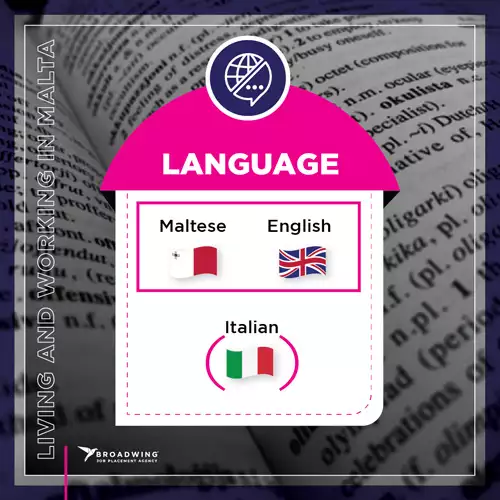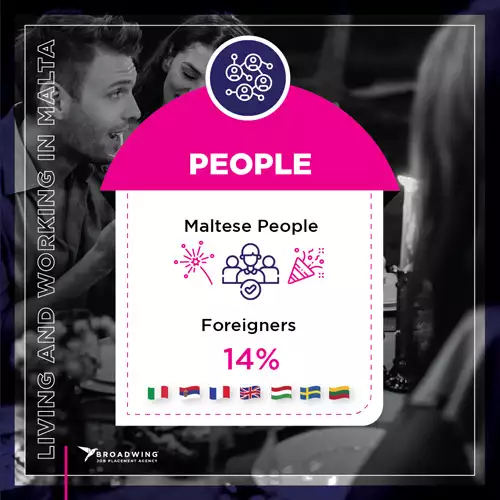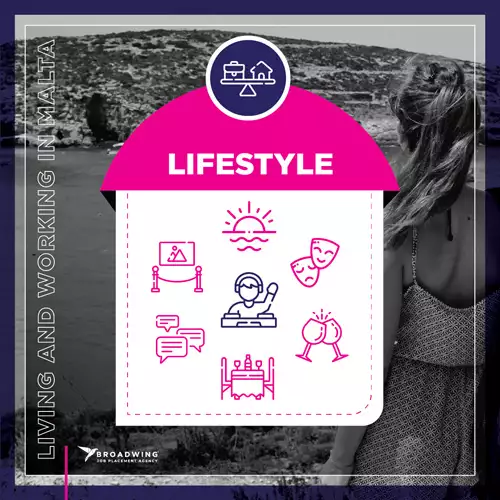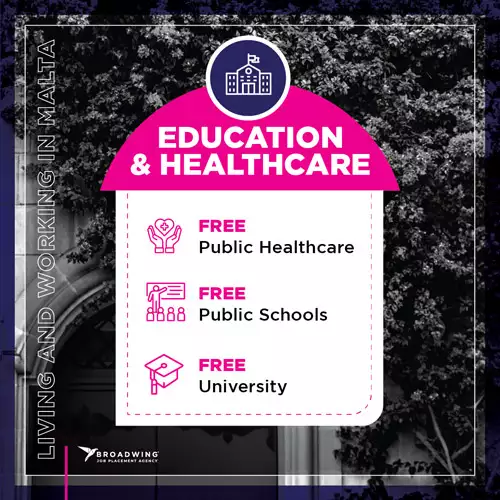Our Guide to Living and Working in Malta

There’s a reason why more and more people decide to move to Malta in search of a new life and job opportunities. On the one hand, the Maltese archipelago boasts the sort of laid back life you’d expect from an island in the middle of the Mediterranean. This means a lot of sun, crystal blue waters, a variety of beaches and exciting social and cultural events. But don’t be fooled by the easy-going vibe, Malta is an EU member state with a thriving economy constantly attracting entrepreneurs, companies, freelancers, and job-seekers. Its favourable tax conditions and the fact that English is an official language are also big incentives for doing so.
We’ve prepared this quick overview to help you get better acquainted with living and working in Malta.
The language
Malta has two official languages; Maltese and English. Practically every Maltese person speaks English to some degree or other and people are quick to speak to you in English if they figure out you’re not Maltese.
You can definitely get by on English and you don’t really need to worry about learning Maltese. If you do decide to learn it, be warned that Maltese is quite a tricky language as it is largely Semitic and quite different if you’re used to Latin languages, for example. You will often come across familiar words from English, French or Italian but the Arabic base consists of around a third of the language.
Italian is also widely spoken in Malta due to geographical and cultural proximity so if you’re coming from Italy or can speak Italian this might come in handy too.


The people
Malta is becoming increasingly multicultural and you’re bound to meet people from all over the world the moment you step foot out of your front door. Foreigners make up over 14% of the population giving Malta one of the highest expat populations in the European Union. For many years, most of the expats in Malta were British. Although they still make up roughly half of the expat population on the islands, some other big communities include people from Sweden, Italy, the Balkans and many more.
But what are the Maltese like? Generally speaking, the Maltese live up to many of the Mediterranean stereotypes; they’re loud and passionate but warm and friendly at the same time. The Maltese culture is centered around family and community and this can be seen during festivities, public holidays and even during the village “festas” during the summer months.
The lifestyle
The Maltese work hard but play hard too. In the summer, the beaches are packed during the day and, as the sun sets, people change out of their beach wear and into their light, summer attire and gather in the many bars, restaurants or clubs. In the smaller villages, people spend their evenings socialising on street corners or in pjazzas with their friends, family and neighbours.
In winter, the islands may look dead but if you start to explore the village side streets you’ll find busy and bustling restaurants and wine bars as people seek shelter from the cold with a bottle of red wine and good company.
There are also plenty of exhibitions, theatres and live music gigs to enjoy at any time of the year.


The health system
Another selling point is Malta’s healthcare system. The country has a great selection of private clinics and services but it also boasts a fully public healthcare system which is free for its residents. Both options provide you with doctors and practitioners of the highest quality.
The education system
Education in Malta is compulsory until the age of 16. Children attend any of the multiple public, private or church schools around the islands. The system starts at the pre-primary stage for children between 3-5 years old, followed by primary (5-11), secondary (ages 11-16) and tertiary education.
After completing secondary school, there are a number of different options for people seeking to further their education including, but not limited to, the University of Malta which offeres a vast range of bachelors degrees, diplomas, masters and doctoral programmes which form part of the European credit system (ECTS).
Working in Malta
A regular working week consists of 40 hours and you can legally work an extra 8 hours which must be paid to you as overtime. As of the 1st of January 2020, employers are entitled to 216 hours of paid vacation leave (27 days) and, generally, 2 weeks of paid sick leave. There is also a healthy number of public holidays to look forward to throughout the year. By law, anyone is entitled to 18 weeks of uninterrupted maternity leave and your employer pays you for the first 14.
Generally speaking, most people start a new job on a six-month probation period where the employer can terminate the contract without needing to provide much reason. Beyond the probation period, an employee wishing to leave their job would need to work a notice period, the length of which depends on how long you have been working there.
Of course, different types of employment contracts can have varying conditions so it is always a good idea to go over your contract thoroughly before signing it. It might even be worth having a lawyer look through it too.
Malta has a lot to offer from a great lifestyle to lots of great job opportunities and a number of public services which make it an ideal place for you to hang your hat for a while or longer.
For more information about finding a job and working in Malta, check out our Jobs in Malta page
